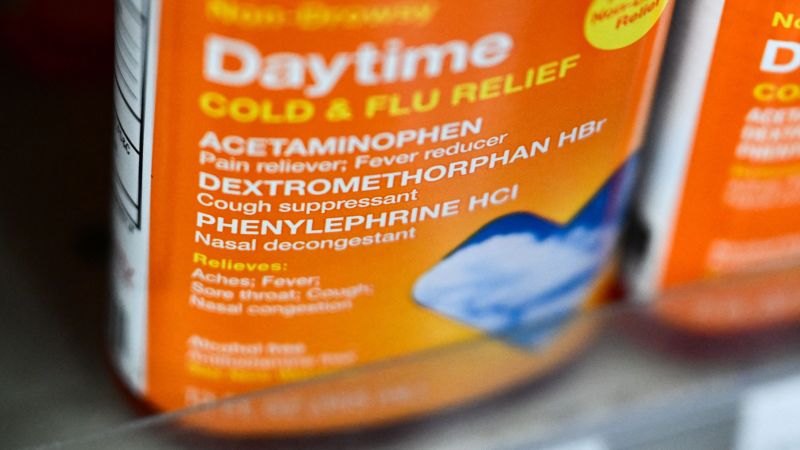The US Food and Drug Administration announced a proposal to remove oral phenylephrine – a common ingredient in many popular over-the-counter decongestants – from the market, citing evidence that it doesn’t work.
Phenylephrine, found in products like Sudafed PE, Vicks DayQuil and Mucinex Sinus-Max, has been widely used as a nasal decongestant for decades. The FDA’s proposal isn’t an immediate order; it launches a six-month public comment period, after which the agency will make a final decision on whether to pull it from shelves.
In a preemptive move, CVS stopped selling products with phenylephrine last year after an FDA advisory committee declared that it was ineffective. Other major pharmacies, including Walgreens and Rite Aid, still stock products containing the drug for now.
Although phenylephrine received FDA approval for over-the-counter use in the 1970s, its popularity surged in 2005 after legislation moved products that use a similar decongestant, pseudoephedrine – which, in large quantities, can also be used to make methamphetamine – behind pharmacy counters.
The safety of phenylephrine isn’t a concern, but its effectiveness has been debated for years. In 2007, an FDA advisory panel that reviewed available studies deemed that phenylephrine “may be effective” as a decongestant, although it recommended further research.
Since then, several large clinical trials have shown that the drug is ineffective when taken orally. In September 2023, an FDA advisory committee concluded that the evidence was clear that phenylephrine is ineffective at its typical oral dosage.
If the FDA ultimately decides to ban the ingredient, it will allow manufacturers time to “either reformulate or remove drug products containing oral phenylephrine from the market,” Dr. Theresa Michele, director of the FDA’s Office of Nonprescription Drugs, said Thursday.
Phenylephrine is also used in nasal sprays for congestion relief, but Michele noted that the FDA’s proposal targets only oral forms of the drug.
Sign up here to get The Results Are In with Dr. Sanjay Gupta every Friday from the CNN Health team.
The Consumer Healthcare Products Association, which represents manufacturers of over-the-counter medicines, said it was disappointed by the FDA’s move.
“CHPA maintains its position that no changes to the GRASE [generally recognized as safe and effective] status of oral PE for nasal decongestion are warranted based on data made available since the previous review in 2007. … PE is the only oral OTC decongestant available without purchase restrictions and is included in numerous OTC cough and cold medicines labeled with a decongestant claim,” the association said in a statement.
“Consumers need options for self-care, and freedom of choice for self-care is a core attribute of our nation’s healthcare system. PE should remain an available option for consumers, because Americans deserve the option to choose the safe and effective OTC medicines they prefer and rely on.”





